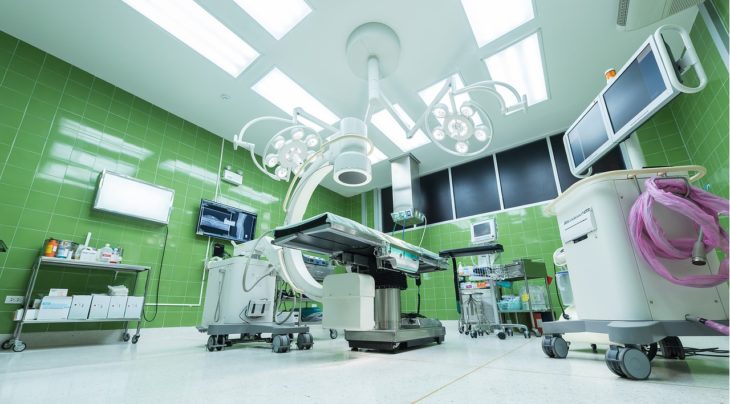
Uterine fibroids are non-cancerous tumors that grow inside the uterus, in the uterine wall, or just outside the uterus. There are a few different types of fibroids, but all of them can cause pain, pelvic pressure, heavy periods that may last longer than a week, frequent urge to urinate, trouble emptying your bladder, constipation, and leg and back pain. Rarely, but sometimes, uterine fibroids can cause you to miscarry. Your uterine fibroids may even be at the root of your infertility.
Depending on the type of fibroids you have, they can absolutely impact your ability to conceive and carry a child in a very big way. Submucosal fibroids are most definitely associated with infertility. They grow within the uterine wall, and can also bulge into the uterine cavity. If you’ve had symptoms of fibroids and are experiencing infertility it’s best to consider removal of your fibroids.
At LA IVF centers, we are dedicated to our patients’ reproductive health. We combine state-of-the-art technology with sensitive and compassionate care. Dr. Aykut Bayrak is a leading expert in fertility and women’s health, including reproductive surgery. Dr, Bayrak and the staff at LA IVF can discuss all of your options with you when it comes to fibroids and infertility.
Why Have Fibroid Surgery?
Though surgery isn’t immediately warranted in many patients with uterine fibroids, those who are experiencing infertility may need to pursue a surgical solution. The surgery to remove your fibroids is called a myomectomy, which preserves your uterus. Other treatment options for fibroid treatment do not apply to women with infertility and fibroids. These include a complete removal of the uterus called a hysterectomy, uterine artery embolization or ablative surgeries. Such interventions will destroy he uterus can cause infertility an thus are considered contraindicated.
Even if you aren’t currently trying to achieve pregnancy, you can to consider removal of the fibroids for symptomatic relief. Most patients are amazed once their periods return to normal after the procedure. The pain and pressure you once came to associate with your cycle is no more. You can resume your normal activities within a few weeks’ time, and after a few months you can begin trying to become pregnant.
Possible Risk Factors for Uterine Fibroids
We don’t know the exact cause of uterine fibroids, nor do we know who is more at risk for developing these benign tumors. Heredity can play a role, if your mother or sister had them you could be at greater risk. Ethnicity can increase your odds, as those of African descent appear to have a greater occurrence of uterine fibroids. Overall, one of out every six women is thought to have fibroids. Most do not know because they do not have symptoms and thus do not need treatment.
What type of surgery is recommended for me?
If fibroids are only inside the uterine cavity called submucosal fibroids, they can be removed by hysteroscopy. This is an outpatient surgery that allows removal of submucosal fibroids only.
If a patient has multiple fibroids located throughout the uterus they can be removed through open myomectomy or laparoscopic myomectomy. If the patient does not desire fertility or has completed her family, laparoscopic myomectomy can be preferred in certain cases. In those who desire fertility or who have infertility already, open myomectomy can offer complete resection of fibroids and better closure of the remaining muscle layer. The uterus often times requires reconstructions which can be done more effectively through the open surgery compared to laparoscopic approach. In certain cases, such as a fibroid connected but mostly located on the outer aspect of the uterus, laparoscopic approach is also reasonable.
Patients who suffer from infertility who need fibroid removal should consult with a fertility specialist first before undergoing surgery. Surgery should accomplish removal of all fibroids in their entirety and should be done by a surgeon who has experience in both fertility treatment and gynecology.
Don’t Delay Uterine Fibroid Surgery
Once you do become pregnant, fibroids can cause problems for you and your baby. Uterine fibroids can cause bleeding and pain, a very scary occurrence, and nearly twice as many women with fibroids miscarry than those without. These benign growths can also cause placental abruption, life threatening to you and your baby, as well as pre-term labor, which puts your baby at risk for complications. Once again, not all fibroids need treatment but for those that do, removal often resolves symptoms and improves outcome.










